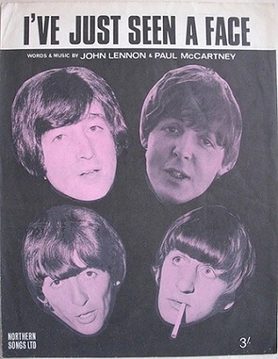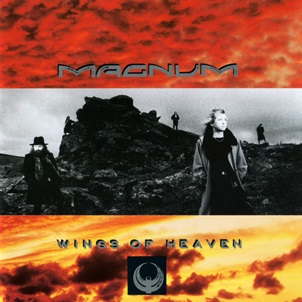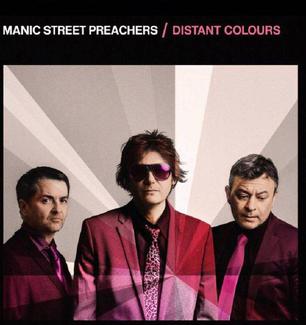Related Research Articles

The Clash were an English rock band that formed in London in 1976 and were key players in the original wave of British punk rock. Billed as "The Only Band That Matters", they used elements of reggae, dub, funk, ska, and rockabilly, and they contributed to the post-punk and new wave movements that followed punk. For most of their recording career, the Clash consisted of lead vocalist and rhythm guitarist Joe Strummer, lead guitarist and vocalist Mick Jones, bassist Paul Simonon, and drummer Nicky "Topper" Headon.

John J. Mellencamp, previously known as Johnny Cougar, John Cougar, and John Cougar Mellencamp, is an American singer-songwriter. He is known for his catchy brand of heartland rock, which emphasizes traditional instrumentation. He was inducted into the Rock and Roll Hall of Fame in 2008, followed by an induction into the Songwriters Hall of Fame in 2018.

Oh! What a Lovely War is a 1969 British epic comedy historical musical war film directed by Richard Attenborough, with an ensemble cast, including Maggie Smith, Dirk Bogarde, John Gielgud, John Mills, Kenneth More, Laurence Olivier, Jack Hawkins, Corin Redgrave, Michael Redgrave, Vanessa Redgrave, Ralph Richardson, Ian Holm, Paul Shelley, Malcolm McFee, Jean-Pierre Cassel, Nanette Newman, Edward Fox, Susannah York, John Clements, Phyllis Calvert and Maurice Roëves.

John Weldon "J. J." Cale was an American guitarist, singer, and songwriter. Though he avoided the limelight, his influence as a musical artist has been acknowledged by figures such as Neil Young, Mark Knopfler, Waylon Jennings, and Eric Clapton, who described him as one of the most important artists in rock history. He is one of the originators of the Tulsa sound, a loose genre drawing on blues, rockabilly, country, and jazz.

Neil Young is the debut studio album by Canadian/American musician Neil Young following his departure from Buffalo Springfield in 1968, issued on Reprise Records, catalogue number RS 6317. The album was first released on November 12, 1968, in the so-called 'CSG mix'. It was then partially remixed and re-released in late summer 1969, but at no time has the album ever charted on the Billboard 200.
The lyrics to the song The Mountains of Mourne were written by Irish musician Percy French (1854–1920). The music was adapted by Houston Collisson (1865–1920) from the traditional Irish folk tune "Carrigdonn" or "Carrigdhoun". The latter had been similarly used by Thomas Moore (1779–1852) for his song Bendemeer's Stream.

"I've Just Seen a Face" is a song by the English rock band the Beatles. It was released in August 1965 on their album Help!, except in North America, where it appeared as the opening track on the December 1965 release Rubber Soul. Written and sung by Paul McCartney, the song is credited to the Lennon–McCartney partnership. The song is a cheerful love ballad, its lyrics discussing a love at first sight while conveying an adrenaline rush the singer experiences that makes him both enthusiastic and inarticulate.

"Low Bridge, Everybody Down" is a folk song credited to Thomas S. Allen, first recorded in 1912, and published by F.B. Haviland Publishing Company in 1913. It was written after the construction of the New York State Barge Canal, which would replace the Erie Canal, was well underway, furthering the change from mule power to engine power, raising the speed of traffic. Also known as "Fifteen Years on the Erie Canal", "Fifteen Miles on the Erie Canal", "Erie Canal Song", "Erie Barge Canal", and "Mule Named Sal", the song memorializes the years from 1825 to 1880 when the mule barges made boomtowns out of Utica, Rome, Syracuse, Rochester, and Buffalo, and transformed New York into the Empire State.

Peter John Joseph Murphy is an English singer, songwriter, and musician. He is the vocalist for the post-punk goth rock band Bauhaus. After Bauhaus disbanded, Murphy formed Dali's Car with Japan's bassist Mick Karn and released one album, The Waking Hour (1984). He went on to release a number of solo albums, including Should the World Fail to Fall Apart (1986) and Love Hysteria (1988). In 1990, he achieved commercial success with his single "Cuts You Up", which went in the top 60 of the US Billboard Hot 100 which is for the singles sales. His album Deep also reached No. 44 on the Billboard 200. In 1992, Murphy released Holy Smoke, which reached No. 108 on the Billboard 200 chart along: it featured lead single "The Sweetest Drop". In 2002, Murphy released Dust with Turkish-Canadian composer and producer Mercan Dede, which utilizes traditional Turkish instrumentation and songwriting, abandoning Murphy's previous pop and rock incarnations, and juxtaposing elements from progressive rock, trance, classical music, and Middle Eastern music, coupled with Dede's trademark atmospheric electronics. In 2014, he released Lion, produced by Killing Joke's Youth, which reached No. 173 on the Billboard 200.

Wings of Heaven is the seventh studio album by the English rock band Magnum, released on 28 March 1988.

"Midnight Rider" is a song by the American rock band the Allman Brothers Band. It was the second single from their second studio album, Idlewild South (1970), released on Capricorn Records. The song was primarily written by vocalist Gregg Allman, who first began composing it at a rented cabin outside Macon, Georgia. He enlisted the help of roadie Robert Kim Payne to complete the song's lyrics. He and Payne broke into Capricorn Sound Studios to complete a demo of the song.

War Horse is a British war novel by Michael Morpurgo. It was first published in Great Britain by Kaye & Ward in 1982. The story recounts the experiences of Joey, a horse bought by the Army for service in World War I in France and the attempts of 15-year-old Albert, his previous owner, to bring him safely home. It formed the basis of both an award-winning play (2007) and an acclaimed film adaptation (2011) by Steven Spielberg. The novel is often considered one of Morpurgo's best works, and its success spawned a sequel titled Farm Boy, which was published in October 1997.
"Botany Bay" is a song that can be traced back to the musical burlesque, Little Jack Sheppard, staged at the Gaiety Theatre, London, England, in 1885 and in Melbourne, Australia, in 1886. The show was written by Henry Pottinger Stephens and William Yardley, with music composed and arranged by Wilhelm Meyer Lutz. The show's programme credits "Botany Bay" as "Old Air arr. Lutz". Sheet music from Allan & Co. in Australia credits Florian Pascal, the pseudonym of Joseph Williams Jr. (1847–1923), a music publisher and composer who published the show's music. Pascal composed other numbers in the score but received no credit for "Botany Bay" in the programme.

"Nobody Knows the Trouble I've Seen" is an African-American spiritual song that originated during the period of slavery but was not published until 1867. The song is well known and many cover versions of it have been done by artists such as Marian Anderson, Lena Horne, Louis Armstrong, Harry James, Paul Robeson, and Sam Cooke among others. Anderson had her first successful recording with a version of this song on the Victor label in 1925. Horne recorded a version of the song in 1946. The Deep River Boys recorded their version in Oslo on August 29, 1958. It was released on the extended play Negro Spirituals Vol. 1, and the song was arranged by Harry Douglas.

Michael Peter Balzary, known professionally as Flea, is an American musician and actor. He is a founding member and bassist of the rock band Red Hot Chili Peppers and, along with vocalist Anthony Kiedis, one of the only two members to appear on every one of the band's albums.

"Streets of Bakersfield" is a 1973 song written by Homer Joy and popularized by Buck Owens. In 1988, Owens recorded a duet version with country singer Dwight Yoakam, which became one of Yoakam's first No. 1 Hot Country Singles hits.
"'Till I Gain Control Again" is a country song written by Rodney Crowell and originally recorded by Emmylou Harris in 1975. The song was included on her 1975 studio album Elite Hotel. The song is most known by the No. 1 single version recorded by Crystal Gayle on her 1982 album, True Love.

Oliver Scott Sykes is a British singer and songwriter, best known as the lead vocalist and primary lyricist of the rock band Bring Me the Horizon. He also founded the apparel company Drop Dead Clothing, and created a graphic novel.

Resistance Is Futile is the thirteenth album by Welsh alternative rock band Manic Street Preachers. It was released on 13 April 2018 through Columbia Records.

"Distant Colours" is the second single taken from the Manic Street Preachers' thirteenth album Resistance Is Futile (2018). It was released on 16 February 2018.
References
- 1 2 Max Arthur (2001) When This Bloody War is Over: 68
- ↑ Neil Philip (21 September 1998). War and the Pity of War. Houghton Mifflin Harcourt. pp. 42–. ISBN 978-0-395-84982-8 . Retrieved 13 October 2012.
- ↑ They Shall Not Grow Old Original Soundtrack on Bandcamp